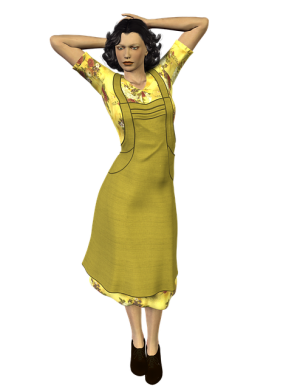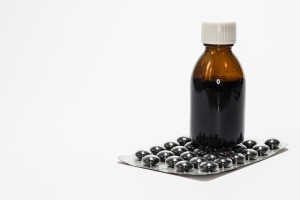(embarrassing) blunder / mistake, embarrassment ![]()
[noun]
[de fla-ter, de fla-ters]
 A “flater” is a stupid mistake in front of other people causing embarrassment. It’s more or less synonymous to “blunder”, which also translates to blunder, but the subtle difference is that a “blunder” is not necessarily witnessed by other people (causing the embarrassment).
A “flater” is a stupid mistake in front of other people causing embarrassment. It’s more or less synonymous to “blunder”, which also translates to blunder, but the subtle difference is that a “blunder” is not necessarily witnessed by other people (causing the embarrassment).
A “flater” is mostly used in the expression “een flater slaan”: (lit.: to hit a blunder) to be embarrassed / to blunder.
Examples:
– “Frank liet een scheet tijdens de vergadering, wat een flater!”
(“Frank farted during the meeting, what a blunder!”)
– “Ik sla echt een flater met dit bodybuilderschort…”
(“This bodybuilder apron really looks embarrassing on me…”)
– “Met de publicatie van dit onverkwikkelijke artikel sloeg de krant echt een flater.”
(“The newspaper really blundered by publishing this distasteful article.”)
Expressions:
–
“Voor lul staan/lopen”: (lit.: to stand for cock) to look like an ass.
Example:
– “Je rits staat open…” – “Oei, dan loop ik al de hele ochtend voor lul.”
(“You’re fly is open…” – “Ouch, I’ve been looking like an ass all morning then.”)
Related words:
– Gênant: embarrassing [adjective].
– Lullig: embarrassingly stupid [adjective].
Example:
– “Frank ziet er een beetje lullig uit met die koffievlek op zijn hemd…”
(“Frank looks a bit stupid with that coffee stain on his shirt…”)
– Prutser: incompetent blunderer, screw up [noun] [de prutser, de prutsers].
Extra:
“Guust Flater” (in the picture) is the Dutch translation of Gaston Lagaffe, a comic strip created in 1957 by the Belgian cartoonist André Franquin. Check this article on Wikipedia for more info.

 An old-fashioned Dutch dinner consists of one simple course: beans or potatoes, meat and vegetables (see also Extra). Simple or not, there’s always the risk of spilling food on your clothes and making a bit of mess in the kitchen. That’s where an apron comes in handy, in Dutch a “schort“.
An old-fashioned Dutch dinner consists of one simple course: beans or potatoes, meat and vegetables (see also Extra). Simple or not, there’s always the risk of spilling food on your clothes and making a bit of mess in the kitchen. That’s where an apron comes in handy, in Dutch a “schort“. to cough
to cough 
